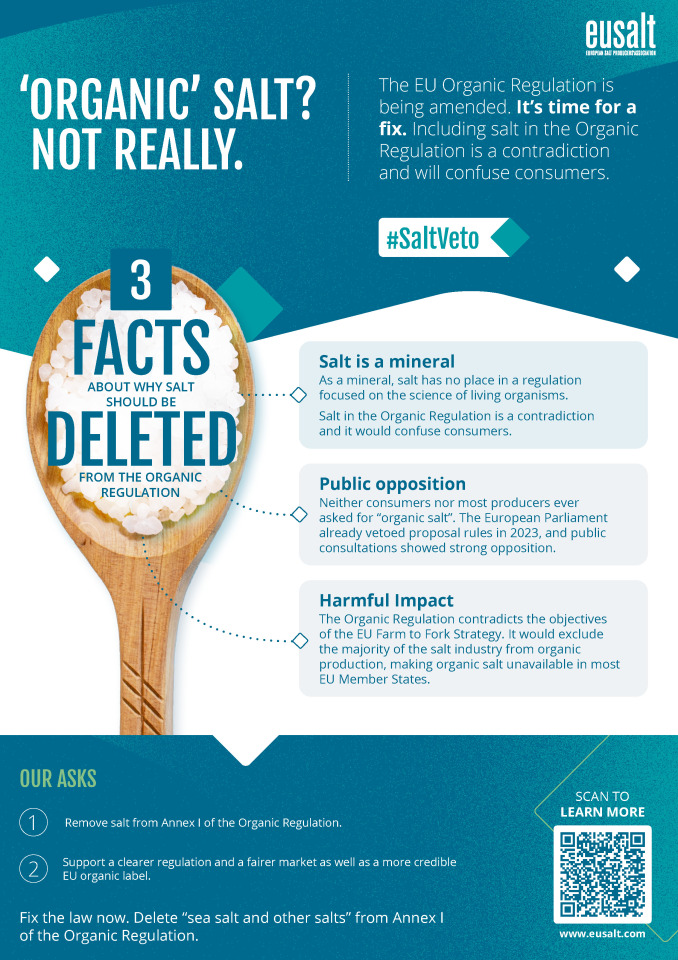Salt is one of the most essential minerals for many sectors. But unlike agricultural products such as wheat or vegetables, salt is inert, non-living and mined or harvested from nature. Recently, the question has been raised: Should salt be included under the EU Organic Regulation?
The background
Since 1 January 2022, salt (specifically “sea salt and other salts for food and feed”) was included in the scope of the EU Organic Regulation (Regulation (EU) 2018/848) via its Annexe I. In May 2023, the European Commission proposed detailed production rules for 'organic salt' (a delegated act), but on 11 July 2023, the European Parliament objected and the proposal was rejected. Today, there are no fully operational, harmonised EU-wide rules for 'organic salt'. National specifications exist only in some Member States.
Why EUsalt is concerned
Salt is a mineral, not an agricultural product; applying an 'organic' label designed for farming risks confusion. The proposed rules would have excluded the vast majority (over 90 %) of EU salt producers from being able to produce 'organic salt', creating discrimination and market disruption. The proposed rules would favour salt from long supply chains or exotic locations, undermining local production and sustainability, contradicting the EU’s Farm to Fork and Green Deal commitments.
Until clear, fit-for-purpose rules are in place, organic-labelled salt runs the risk of misleading consumers and weakening trust in the 'organic' brand.
What EUsalt is asking for
Remove salt from Annexe I of Regulation (EU) 2018/848 — thereby excluding salt from the organic regime. If salt continues to be included, ensure any production rules are realistic, consistent with mineral production, and do not exclude the majority of EU producers. Harmonise labelling across the EU so that consumers can clearly understand what 'organic salt' means (technically and sustainably). Protect the credibility of the 'organic' label by aligning rules only with the core objectives of organic production — resource efficiency, environmental protection, and biodiversity — and not by simply adding every product.





